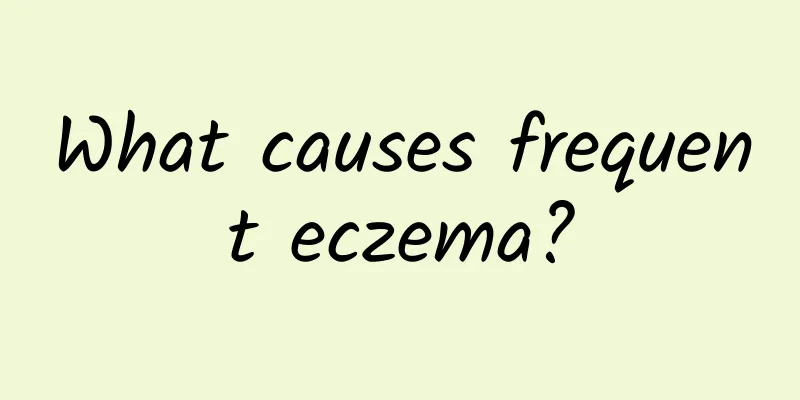Allergic conjunctivitis treatment

|
Allergy is a disgusting thing. Food allergy, metal allergy, pollen allergy, ultraviolet allergy, etc. are often hard to guard against. Allergic conjunctivitis must be treated in a regular hospital. The main symptom of allergic conjunctivitis is itchy eyes. Patients may suffer from allergies due to weather changes, tree pollen, weed pollen, etc. There are many types of allergies, including perennial allergies and seasonal allergies. Patients with allergic conjunctivitis may experience tearing, unexplained burning sensation in the eyes, and even secretions from the eyes. This situation is usually more common in spring. If a child suffers from allergic conjunctivitis, local edema may also occur. Many patients with this disease do not have obvious symptoms and it is easily overlooked. The purpose of treatment for allergic conjunctivitis is to alleviate clinical symptoms and avoid sequelae, while attention should be paid to avoiding the occurrence of iatrogenic complications. 1. General treatment Allergen avoidance is the most ideal and effective treatment. Contact with possible allergens should be avoided as much as possible. For example, remove rags and blankets from the room, pay attention to bed hygiene, use pesticides to eliminate insect mites in the room, avoid contact with grass, tree flowers, etc. during the pollen transmission season, stop wearing or replace high-quality contact lenses and care solutions. Applying cold compresses to the eyelids may provide temporary relief. 2. Medication (1) Antihistamines Antihistamines are usually used topically. Commonly used eye drops include 0.1% Emedastine, 0.05% Levocabastine, 0.1% Olopatadine and 0.5% Ketorolac. If there are extraocular symptoms, oral medications can be used, but their effect is not as good as topical medications. Commonly used oral medications include diphenhydramine, chlorpheniramine, promethazine, etc. The combined use of antihistamines and vasoconstrictors, such as Runjianasol, can often achieve better therapeutic effects. (2) Commonly used mast cell stabilizers include disodium chromoglycate and nedocromil. Although mast cell stabilizers are less effective than antihistamines overall, they appear to be more effective in suppressing tearing. Best used before exposure to allergens. (3) Nonsteroidal anti-inflammatory drugs can be used in both the acute and intermittent stages of allergic diseases. They have shown certain therapeutic effects in relieving eye symptoms and signs such as itchy eyes, conjunctival congestion, and tearing. They can also reduce the dosage of hormones. Commonly used drugs include indomethacin (diclofenac sodium) and aspirin. (4) Commonly used drugs for topical use of vasoconstrictors include epinephrine naphazoline, oxymetazoline, tetrahydrozoline, etc., which can improve eye discomfort and reduce ocular surface congestion. (5) Glucocorticoids should only be used when other drugs are ineffective in treating severe allergic conjunctivitis, and should not be used for too long to avoid complications such as cataracts, glaucoma virus infection, fungal infection, and delayed corneal epithelial healing. Commonly used ones include dexamethasone, betamethasone and fluorometholone. (6) The main immunosuppressants include cyclosporine A and FK506. For some severe cases of vernal keratoconjunctivitis that require the use of hormones, topical application of 2% cyclosporine A can quickly control local inflammation and reduce the amount of hormones used. However, relapse is common after medication discontinuation. 3. Desensitization treatment This method is mainly used for seasonal allergic conjunctivitis. Its therapeutic effect is often not ideal for other subtypes of allergic conjunctivitis, so it is rarely used. 4. Cryotherapy This method is mainly used for vernal keratoconjunctivitis. Cryotherapy is often used on the upper eyelid conjunctiva, lowering the temperature to -80°C to -30°C for 30 seconds. Cryotherapy can be repeated 2 to 3 times. 5. Psychotherapy Ocular allergic disease is an acute or chronic recurrent disease, and it is often very difficult to completely cure it. Therefore, it causes great psychological pressure on some patients. In particular, some children with vernal keratoconjunctivitis may have certain psychological disorders and should be paid attention to. There are many treatments for allergic conjunctivitis, and different treatments should be used according to the patient's different symptoms. Eyes are the windows to the soul. If the eyes are uncomfortable or have eye diseases, it will have a certain impact on the patient's life and work. Allergic conjunctivitis should be treated as early as possible, and you must not take it lightly when you feel discomfort around your eyes. |
Recommend
Traditional Chinese medicine health care can help you prolong your life. Traditional Chinese medicine health care method
The culture of traditional Chinese medicine has a...
What is bran?
Although bran is not used much in our daily life,...
Can I swim when my period comes?
Try not to take a sitting bath during your period...
Why do I have bitter breath in the morning?
Many people will notice bad breath and bitter tas...
Can Qilin Pills cure infertility?
Qilin Pills are a Chinese patent medicine. Resear...
What medicine to take during the acute stage of gout
Gout is a relatively common disease. Patients may...
How many pills should I take at one time?
How to take Ren Dan? It is very easy to get heats...
Coughing and a little breathless, what should I do?
In daily life, cough is a common cold symptom. Es...
What are the Chinese medicines for weight loss?
With the development of society and the improveme...
Mesotherapy for acne
Acne is one of the topics that never gets cold am...
The difference between Danshen and Codonopsis
As we all know, ginseng is a tonic that can nouri...
Why does the child keep sleeping?
If the child is sleeping all the time, parents sh...
What causes cracked toenails?
Cracks in toenails are sometimes caused by calciu...
Diet for psoriasis
Now more and more people are suffering from psori...
What are the beauty benefits of Centella asiatica
We all hope that we can have a youthful face and ...









